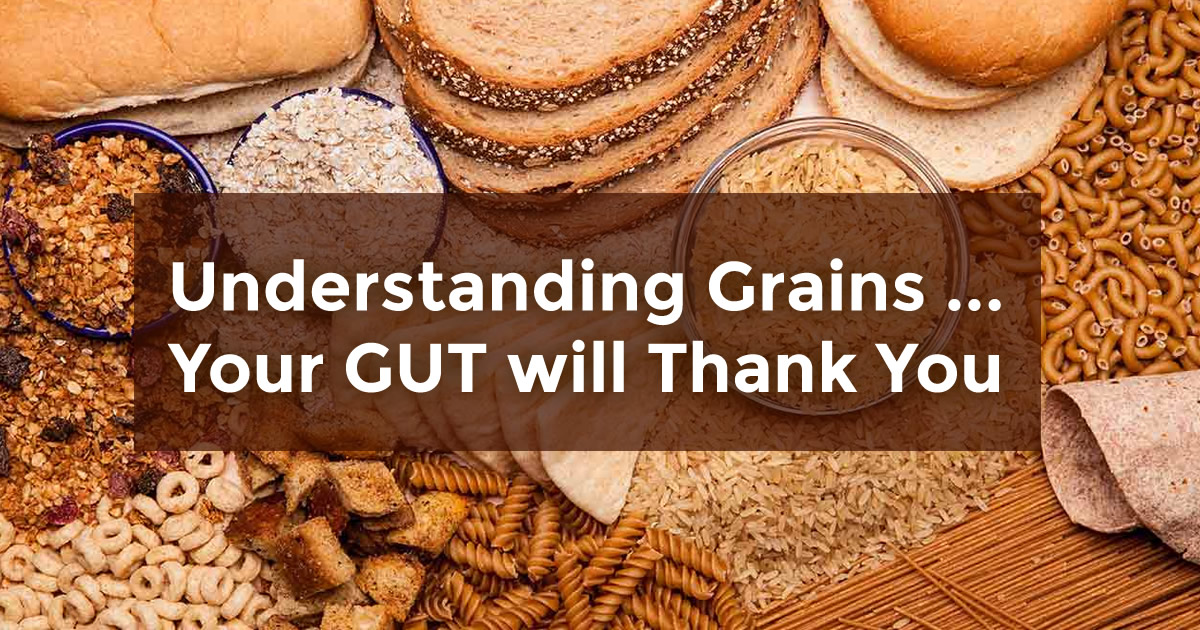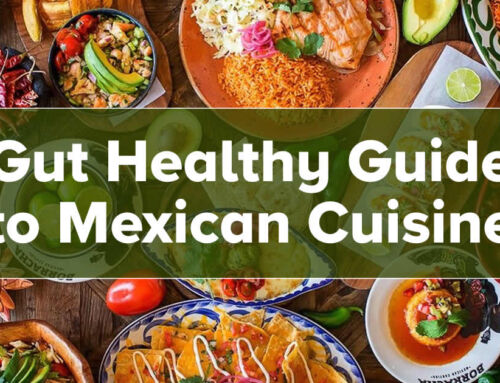Grains have existed for thousands of years. Incredibly, our ancestors started eating grains more than 100,000 years ago.
For most people, grains are a dietary staple. But there are some diet plans like the keto and paleo diets that avoid eating grains.
In today’s modern society, grains are a controversial food. However, research overwhelmingly shows that whole grains offer many benefits when eaten in moderation. Keep reading to learn more about grains and how they can impact your health.
What Are Grains?
Grains are tiny, hard, dry seeds produced by grassy plants known as cereals. Cereal crops include wheat, oats, rice, corn, barley, sorghum, rye, and millet.
All cereal crops grow seeds that contain the following edible components:
- The bran: the outer skin that surrounds the seed. The bran consists of multiple layers that contain B vitamins, fiber, and antioxidants.
- The germ: the innermost portion of the seed that can sprout into a new plant. The germ contains B vitamins, protein, healthy fats, and minerals.
- The endosperm: the middle layer of the plant that provides nutrients to the germ. This is the most significant part of the seed and contains carbohydrates, protein, vitamins, and minerals.
Other seeds, known as pseudocereals, contain nutrients similar to cereal grains. Pseudocereals are commonly referred to as whole grains. However, these seeds are not technically grains because they don’t grow on grassy plants. Some pseudocereals are:
- Amaranth
- Buckwheat
- Quinoa
Types of Grains
There are two main types of grains that differ in nutritional value and composition. We’ll discuss them below.
1) Whole Grains
Whole grains contain the entire seed — the bran, germ, and endosperm. They are the healthiest type of grain you can eat. Whole grains are minimally processed and nutritionally dense. They contain B vitamins (thiamin, niacin, and riboflavin), selenium, iron, magnesium, protein, and fiber.
Examples of whole-grain foods include:
- Whole wheat bread
- Whole-grain rye bread
- Oatmeal
- Brown rice
- Corn tortillas
- Popcorn
- Whole wheat pasta
2) Refined Grains
Refined grains are processed to remove one or more components of the whole seed. For example, refined wheat consists only of the endosperm. The refining process removes the bran and germ and grinds the endosperm into a fine flour. As a result, refined grains lack essential nutrients.
Some examples of refined grains include:
- White flour
- White bread
- White rice
- Corn grits
- Pasta
- Pastries
- Crackers
Many refined grains are also enriched grains. This means they contain added vitamins and minerals to replace those lost during processing.
Whole Grains and the Gut Microbiome
Eating whole grains promotes a healthy gut microbiome. This is because whole grains contain fiber. The bacteria in your gut break down fiber and produce short-chain fatty acids (SCFAs).
SCFAs are beneficial metabolites that increase the growth of healthy bacteria in your gut. They improve gut health by reducing inflammation and improving intestinal barrier integrity. SCFAs also play a role in your immune function, metabolism, behavior, and cognition.
Eating a diet low in fiber can reduce the diversity of the gut microbiome. This can lead to digestive problems like irritable bowel syndrome (IBS) and inflammatory bowel disease (IBD).
Of note, whole grains are not the only source of fiber. Other plant-based foods like fruits, vegetables, legumes, nuts, and seeds also provide similar health benefits as whole grains.
Health Benefits of Whole Grains
Adding more whole grains to your diet can improve your health. Some of the health benefits of whole grains are due to their high content of fiber.
Fiber can normalize bowel movements, prevent constipation and hemorrhoids, and improve bowel frequency. Fiber also reduces cholesterol absorption in the bloodstream, which can reduce your risk of heart disease.
Remarkably, eating whole grains can even lower your risk of colon cancer. Research shows that consuming 90 grams of whole grains daily can reduce your colon cancer risk by 15-17%. Whole grains are also associated with a lower risk of gastric, pancreatic, and esophageal cancers.
Another study found that whole grains can prevent the development of colon lesions in ulcerative colitis.
However, whole grains are more than just fiber. They also contain an assortment of vitamins and minerals that are essential for optimal health.
The B vitamins thiamin, niacin, and riboflavin regulate your metabolism and support a healthy immune system.
Whole grains are also excellent sources of iron, selenium, and magnesium. Iron helps transport oxygen to cells throughout your body. Selenium strengthens your immune system and prevents cellular damage. Lastly, magnesium promotes bone health and boosts your energy levels.
How to Add More Whole Grains to Your Diet
Follow these tips below to add more whole grains to your diet:
- Read the ingredient labels of foods before buying to make sure they contain whole grains. For example, whole wheat bread will say “whole grain wheat flour” or “whole wheat flour.”
- Watch out for marketing labels like “multigrain.” Multigrain is not the same as whole grain.
- Start your day off on the right foot with a serving of whole grains. Oatmeal or whole-wheat toast are healthy breakfast choices.
- Cook extra grains so you have leftovers. For example, you can prepare brown rice and use it for salad bowls, stir-fries, and burritos throughout the week.
- Make healthier snack choices. Snack on whole grains like popcorn instead of processed foods like chips.
- Opt for whole grains over refined grains when buying bread, buns, crackers, pasta, and tortillas. Whole grains contain fiber, which makes you feel fuller longer.
The Bottom Line
Grains can be a healthy addition to a balanced diet. The benefits of whole grains extend beyond just your gut health. They also improve your overall health. Still, you should eat grains in moderation. The US dietary guidelines recommend eating 85 grams of whole grains daily.
You should choose whole grains over refined grains whenever possible. Whole grains are a better choice than refined grains because they contain fiber, protein, vitamins, and minerals. Additionally, non-organic grains are often treated with fertilizers and insecticides. Because of this, I always recommend eating organic when possible.
Everyone is different, so some people may be able to digest grains better than others. If you struggle with digesting grains or think you may have a food intolerance, you can call my office at 210-615-8308 or make an appointment online.




